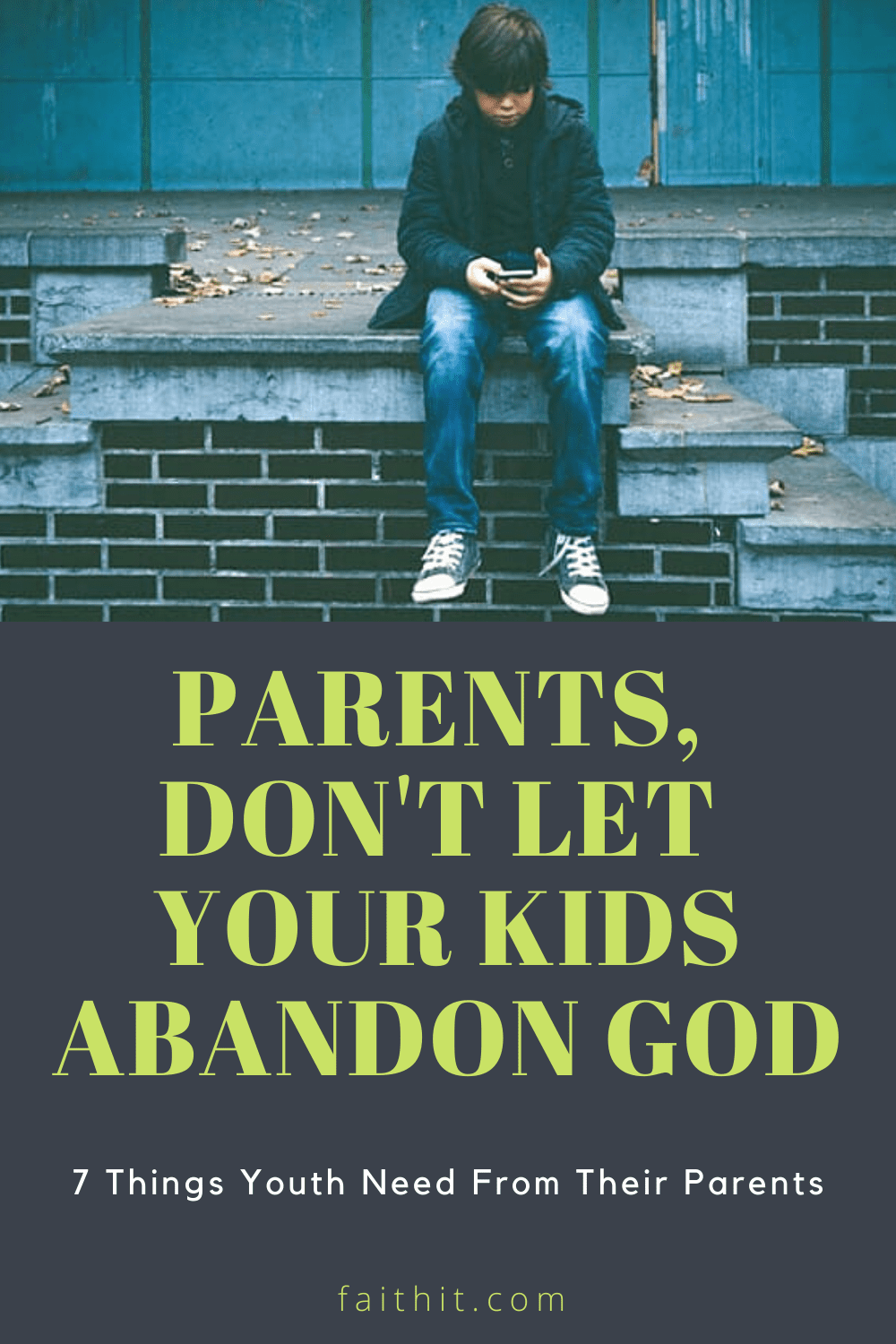You can’t manufacture salvation. But you can show people God’s love.
Parents, what you can do is show the love of God to your children. This starts by helping them see their present struggles as God’s concern. Sit down with your children. Talk to them. Show them grace.
As you do this, the gospel will come to life. Because the gospel doesn’t just inform salvation. It informs everything. Addictions. Temptations. Identity issues. And once your children see that God walks with them through their struggles, they will have a stronger desire to give their lives to him.
3. They need you to answer the questions they are asking.
Today’s culture is extremely complicated and complex. Young people see everything. Information (good and bad) is available on-demand. And as young people battle with difficult questions about sexuality and social issues, among many other things, the world is forming their perspective. Every article. Every conversation. Every video.
It is more important than ever that parents open up space to discuss difficult topics. It’s time to stop turning a blind eye to the questions prevalent in the lives of your kids. Naivety is not an excuse. Awkwardness and tension won’t work as excuses either.
I never had a conversation (at least not one I remember) with any [an] adult about sex growing up. Nothing about lust. Nothing about God’s design for purity. Nothing about masturbation. I never had a conversation about alcohol. I was battling these questions, but Christians weren’t there to give me answers. So, I tried to figure it out myself. You can only imagine how that worked out for me.
Yes, these conversations are awkward. Yes, they create tension. But your children are asking them. Unless you create space for the hard questions, they will turn to other sources for answers. And that usually doesn’t end well.
4. They need you to stop protecting them.
The world is broken. No argument from me there. It seems as though our world is more sinful than ever.
But I wonder what the response would be if the same microscope were placed on cities like Ephesus and Corinth? During the time of Paul, Ephesus was overtaken by witchcraft. Every spring, roughly 1,000,000 people traveled to the temple of Artemis, which was filled with prostitutes. Let’s just say these people weren’t going to the temple to talk about the weather.
To top it off, Ephesus hosted the Festival of Dionysus, a keg party that would have laughed in the face of any St. Paddy’s Day party you have thrown (not that you would do that sort of thing).
So, how does Paul instruct the Ephesians to respond in the midst of a culture blanketed with sin? He tells them to put on the armor of God (Eph. 6:10-20). In other words, jump in the fight. Paul didn’t understand a theology of retreat. There is no such thing. He expected the Christians in Ephesus to engage the culture, not run from it.
When the ultimate goal is to make sure our children never experience the evils of the world, we not only do them an injustice socially, we rob them of seeing the gospel’s transformative power.
As a parent, your goal should not be to teach your kids how to flee from evil. Your goal should be to show them how to engage it. For the glory of God. In those spaces, they will see the gospel. And it will become real.
5. They need to see God as more than rules and church attendance.
Every decision, every thought, and every action comes down to this: in whom do I place my trust? –Kara Powell
Looking back on my childhood, this was the most important factor in my faith as I transitioned into college. I needed to see that my parents trusted the promises of God. I needed to see that my parents made decisions as though God was real and alive, not a set of rules or a list of “do’s and don’ts.” I got that from my mom. Not so much from my dad.
And until God surrounded me with men who modeled an unwavering trust in Him, I thought following Jesus was just a piece of the puzzle.


